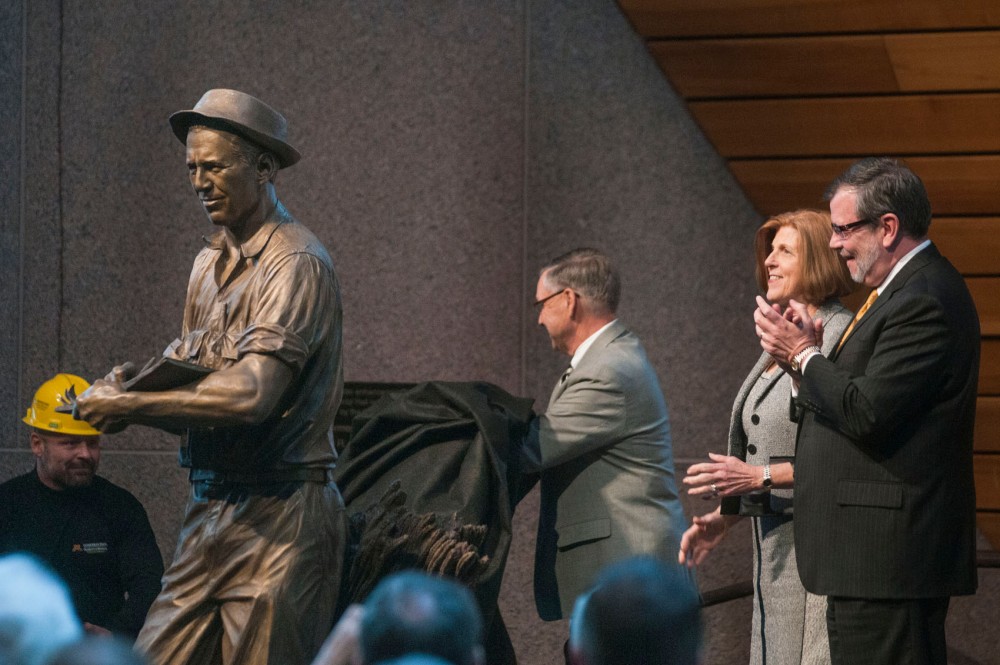In high school, Tessa Ries watched a movie clip on Nobel Peace Prize-winning Norman Borlaug, a University of Minnesota alumnus who is credited worldwide with helping developing countries through his research.
The segment inspired Ries to pursue a career in plant pathology and apply at the College of Food, Agricultural and Natural Resource Sciences. The Global Youth Institute — a foundation Borlaug started —selected Ries to study food security, and she continues to travel around the world continuing Borlaug’s work.
Borlaug died in 2009, and the University honored the scientist with a series of events for his 100th birthday last Tuesday. Administrators also unveiled a statue of Borlaug during a conference at the McNamara Alumni Center.
“We all know Norman Borlaug made enormous contributions to feeding the world, and he is a great source of pride for this University,” University President Eric Kaler said at the conference.
Borlaug’s legacy inspires students and others to make a difference, Ries said, noting that his work saved millions from starvation by creating disease-resistant and high-yielding wheat.
Reis and plant pathology senior Margaret Krause took the podium last week to discuss the role Borlaug’s career plays in their studies. Krause researches ways to use technology crop data to help alleviate famine.
“Technology and data is really changing how we can solve problems,” Krause said.
In addition to his Nobel Peace Prize, Borlaug was awarded the Presidential Medal of Freedom and the Congressional Gold Medal. He is one of several people — including Martin Luther King Jr., Nelson Mandela and Mother Theresa — to be honored with all three awards.
Last Monday, CFANS celebrated Borlaug with its annual Plant Breeding Symposium and a social at the St. Paul Student Center the next day, where guest speakers, students and faculty members discussed global food issues.
With Borlaug’s help, many countries, including Mexico, Pakistan and India, were able to significantly increase their crop yields following decades of starvation.
Ries said the crop researcher’s legacy has greatly influenced her time at the University by pushing her to excel in her studies and never underestimate far-reaching goals.


